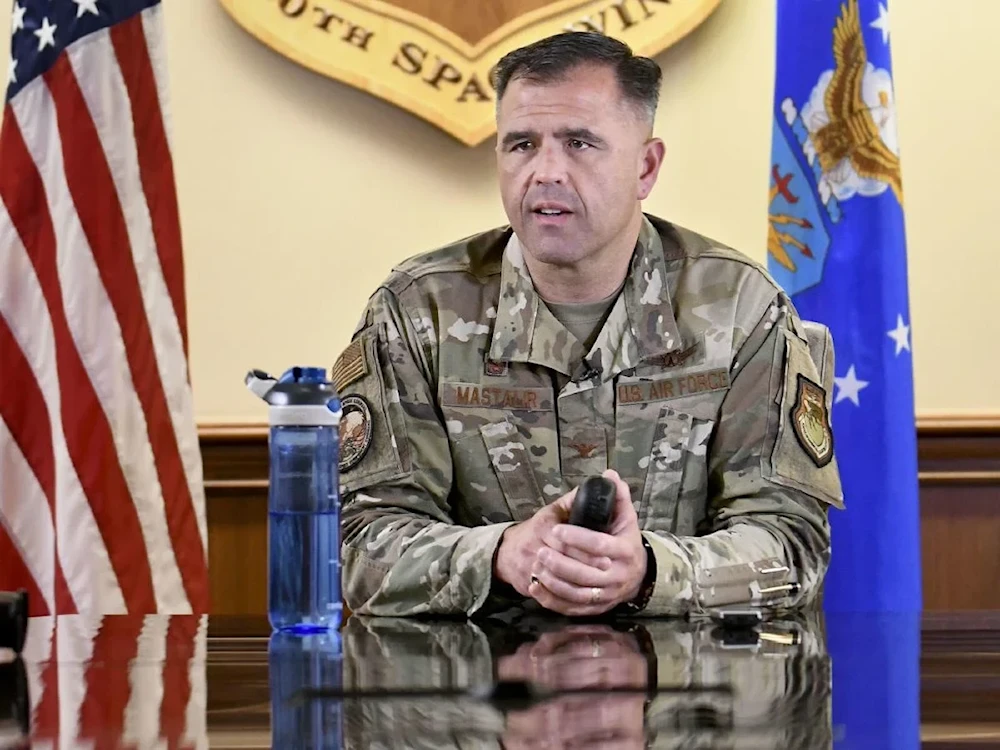Miscalculations could lead to US, China conflict: US General
The Chief of the US Space Force in the Indo-Pacific says that Washington "does not seek" conflict with China, but incidents in the South China Sea, coupled with a lack of communications, could lead to that.
-

Chief of the US Space Forces Indo-Pacific Anthony Mastalir at Vandenberg Air Force Base in October 2019 (US Space Force)
The Chief of the US Space Forces in the Indo-Pacific region stated that the United States does not want a conflict with China, but expressed concerns that incidents in the South China Sea could lead to the two countries going to war due to a lack of communication.
Speaking at the Air and Space Forces Association's air warfare symposium in Colorado's Aurora, Anthony Mastalir said that his "biggest concern is that some miscalculation in the South China Sea" coupled with "lack of communication between Beijing and Washington [with] unintended consequences could get us into a conflict that the United States does not seek."
Read more: US, Philippines conduct joint military exercises in South China Sea
Mastalir mentioned that the military commands of the United States and China have been collaborating to enhance their direct communication channels, aiming to prevent such incidents from escalating out of control.
Colonel David Berkland, Chief of Staff at the US Pacific Air Forces Headquarters, alleged that there had been an increase in the frequency of deliberate close encounters initiated by pilots from China's People's Liberation Army (PLA) Air Force while flying over international waters in the region in recent months.
"We have seen an increase in the [number of] intercepts conducted by the PLA Air Force, sometimes firing across the noses of our aircraft," he said.
Read more: Biden, Xi vow to reduce tensions at key summit
Avoid miscalculations and communicate
At Washington's request, the top commanders of the Chinese and US military held talks last December for the first time in over a year.
China’s Defense Ministry cited the Chief of Staff of China’s Central Military Commission General Liu Zhenli as telling US Joint Chiefs of Staff Chairman General Charles Q. Brown that the “right perception” toward China should be established by the US to improve bilateral relations
Liu voiced to his American counterpart that the issue of Taiwan “is purely China’s internal affair, which brooks no foreign interference,” reiterating China's readiness to “resolutely defend” its sovereignty and territorial integrity.
Read more: US, Japan engage in army drills using China as hypothetical enemy
He also urged the US to respect Chinese interests in the South China Sea and resort to “concrete actions to safeguard regional peace and stability."
The statement noted that Liu perceived the resumption of communications with the US military as a significant development but did not leave out that the enhancement in bilateral ties would only happen if the US develops the “right perception toward China… respect China’s core interests… and promote pragmatic cooperation and enhance mutual understanding.”
On its part, the Pentagon said that both “discussed the importance of working together to responsibly manage competition, avoid miscalculations, and maintain open and direct lines of communication.”
Brown told his counterpart that China should be “engaging in substantive dialogue to reduce the likelihood of misunderstandings” as he urged for lines of communication to be established between the chief of the US Indio-Pacific Command and the leaders of the Chinese People’s Liberation Army’s Eastern and Southern Theater Commands, as well as for the resumption of dialogue in other ways.
Read more: Russia, China reject US-UK strikes on Yemen during UNSC meeting

 3 Min Read
3 Min Read








